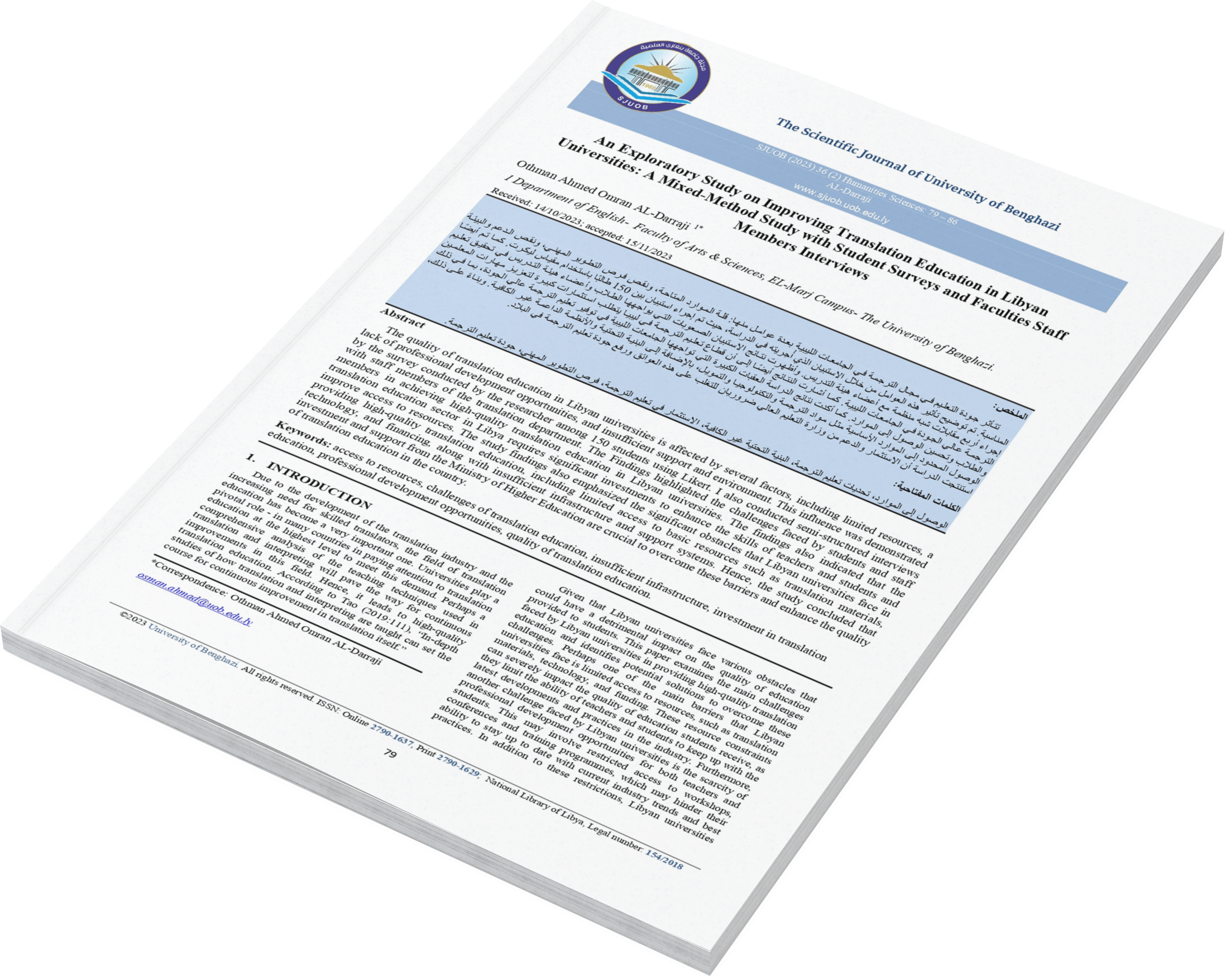An Exploratory Study on Improving Translation Education in Libyan Universities: A Mixed-Method Study with Student Surveys and Faculties Staff Members Interviews
DOI:
https://doi.org/10.37376/sjuob.v36i2.4291Keywords:
access to resources, challenges of translation education, insufficient infrastructure, nvestment in translation education, professional development opportunities, quality of translation educationAbstract
The quality of translation education in Libyan universities is affected by several factors, including limited resources, a lack of professional development opportunities, and insufficient support and environment. This influence was demonstrated by the survey conducted by the researcher among 150 students using Likert. I also conducted semi-structured interviews with staff members of the translation department. The Findings highlighted the challenges faced by students and staff members in achieving high-quality translation education in Libyan universities. The findings also indicated that the translation education sector in Libya requires significant investments to enhance the skills of teachers and students and improve access to resources. The study findings also emphasized the significant obstacles that Libyan universities face in providing high-quality translation education, including limited access to basic resources such as translation materials, technology, and financing, along with insufficient infrastructure and support systems. Hence, the study concluded that investment and support from the Ministry of Higher Education are crucial to overcome these barriers and enhance the quality of translation education in the country.
Downloads

Downloads
Published
How to Cite
License
Copyright (c) 2023 The Scientific Journal of University of Benghazi

This work is licensed under a Creative Commons Attribution-NonCommercial-NoDerivatives 4.0 International License.















